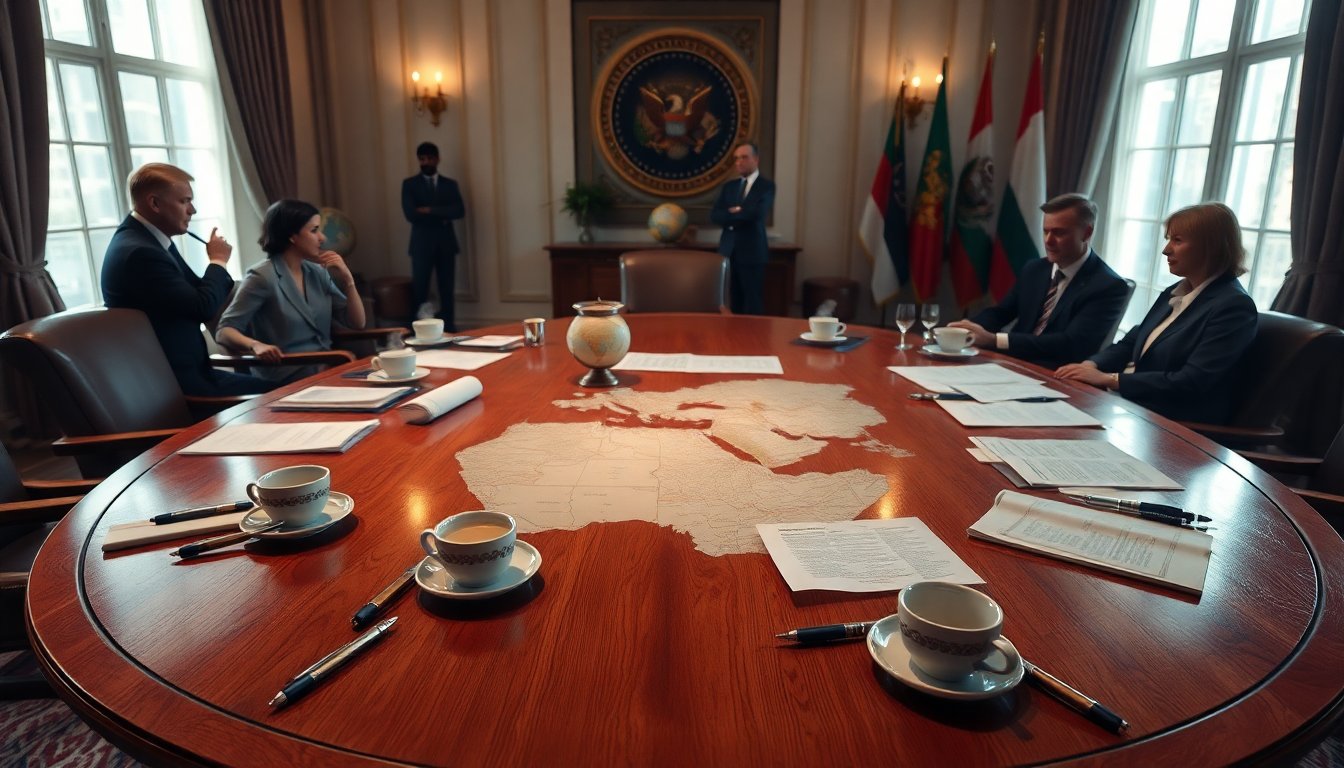Table of Contents
In a notable effort to address critical international challenges, President Trump has sent a prominent delegation to the Middle East. The team, which includes Steven Witkoff and Jared Kushner, is focused on negotiating a vital hostage release. This initiative underscores the urgency of the situation and the intricate dynamics involved in securing a favorable resolution for all parties involved.
The significance of the delegation
The participation of key figures in the negotiations highlights the seriousness with which the Trump administration is addressing this complex issue. Witkoff, a noted real estate mogul, and Kushner, the president’s son-in-law and senior advisor, bring a distinctive blend of business insight and political knowledge. Their involvement in the negotiations reflects a dedication to achieving a resolution that considers the interests of various stakeholders.
Challenges in the negotiation process
The journey to a successful resolution is not without its challenges. Significant concerns about the potential deal’s terms have created unease among the parties involved. The situation is complex, with various interests at play, and any miscalculation could derail the negotiations completely.
Additionally, the geopolitical landscape of the Middle East introduces further complexities. The region is characterized by intricate alliances and rivalries that can complicate discussions. Each party must navigate these challenges diligently, ensuring that their actions do not provoke additional complications or heighten existing tensions.
Strategic implications of the hostage situation
The hostage situation presents more than just a humanitarian crisis; it carries significant strategic consequences. Successfully negotiating a release could strengthen the Trump administration’s position on both domestic and international fronts. Such an outcome may be viewed as a notable diplomatic success, potentially improving the president’s reputation among constituents and allies.
Potential outcomes and their impact
If the delegation succeeds in securing the release, the ramifications could extend beyond the immediate parties involved. A successful negotiation may strengthen ties with regional partners and pave the way for future cooperation on broader issues. Conversely, a failure to achieve a favorable outcome could lead to diplomatic setbacks and undermine confidence in the administration’s ability to manage international crises.
Trump’s decision to engage high-profile negotiators also highlights his awareness of the media’s role in shaping public perception. The narrative surrounding the hostage negotiations is likely to attract significant attention, and the administration aims to project a proactive approach. This strategy can influence how both domestic and international audiences view the effectiveness of Trump’s foreign policy.
The road ahead
As Witkoff and Kushner undertake this significant mission, global attention is firmly fixed on their efforts. The results of their negotiations will influence not only the fate of the hostages but also the broader diplomatic environment in the region. The prominence of this delegation underscores the administration’s earnest commitment to addressing this complex issue.
The success of these negotiations hinges on the ability of all parties involved to identify common ground despite their contrasting interests. With high stakes at play, the implications of this mission are extensive, marking a crucial juncture for the Trump administration as it navigates the intricate landscape of Middle Eastern diplomacy.


